Search Results
Search
Filter results
Advanced Filters
Your search returned 883 Solutions
-
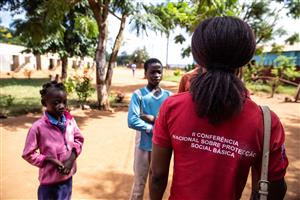
Inclusive Teacher-Training Centres
ADPP, a Mozambican NGO, and Light for the World are working together to transform rural teacher-training centres (TTC) into centres of expertise on Inclusive Education. ADPP acts as the implementing partner, while Light for the World provides most of the funding as well as the Inclusive Education expertise.
ADPP - Aid for the Development of People for People Mozambique, Teacher Training Centres, Mozambique -
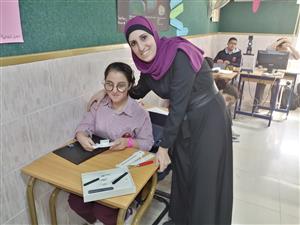
Inclusive schools for students who are blind or visually impaired
The Arab Episcopal School in Irbid is an inclusive school with kindergarten for children with and without visual impairments and of different religions. In 2018 the school had 40 blind or visually impaired school children. Five of the teachers are blind and also support the children in their daily life.
Arab Episcopal School Irbid, Inclusive Education for visually impaired children, Jordan -
Inclusive school systems rolled-out in Zimbabwe
This project aims to support nearly 3,000 children with disabilities to go to school in rural Mashonaland West Province, in Zimbabwe. It also equips schools with accessible facilities, teacher training, and awareness raising for Inclusive Education within the local communities. Results should also influence Inclusive Education policies and practices across Zimbabwe.
Leonard Cheshire Disability, Zimbabwe -
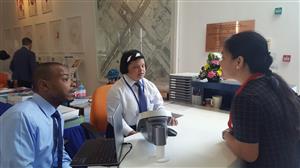
Full-range services in Inclusive Education and job readiness
PRIDE is a modular programme for people with disabilities covering the areas of training (from the age of 4), vocational preparation and job placement. Participants in the PRIDE program can either attend the Manzil Educational Center on a full-time basis or complete individual programs on a part-time basis
Manzil Center, People Receiving Independence & Dignity through Empowerment (PRIDE), United Arab Emirates -
Preventing bullying in English schools
A variety of resources have been developed to raise awareness at English schools. These include materials on how to challenging offensive language, a language guide, and a history of disability harassment and bullying. The tools are now available for all students, parents, and teachers on the Anti-Bullying Alliance website.
World of Inclusion, United Kingdom -
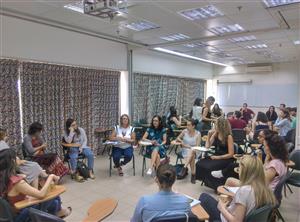
Supported education services for people with serious mental health issues
In the SES programme, the service recipients are assisted by professionell coordinators in their academic, emotional and social challenges during their studies. The aim is to create better access to academic frameworks and to promote the inclusion of programme graduates into the open labour market.
Israel Ministry of Health, SES Programme, Israel -
Training the teachers and their trainers in Inclusive Education
A key part of the programme is the provision of training courses on Inclusive Education at the Armenian State Pedagogic University, where there are two compulsory and two optional courses on Inclusive Education. 200 mainstream schools are supported to become inclusive and some 5,000 teachers from these schools are beiing trained.
Bridge of Hope, Armenia -
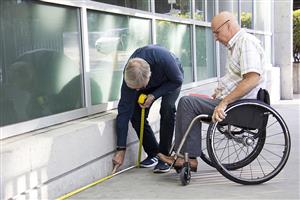
Rating-based training of accessibility assessors
The Rick Hansen Foundation Accessibility Certification (RHFAC) is a comprehensive rating system to measure meaningful accessibility in the built environment. The foundation also launched a training course for professionals in the construction industry to promote the principles of both the RHFAC and Universal Design.
Rick Hansen Foundation, Rick Hansen Foundation Accessibility Certification, Canada -
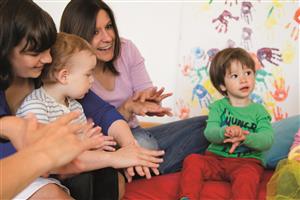
Bilingual Classes Supporting Families to Learn Sign Language Together
Using a team of one person who is deaf and one who can hear, kinderhände offers bilingual classes in German and ÖGS to children aged six months to 14 years and their families. It also has an online platform for families to use at home, and has developed teacher-training modules to support ÖGS use in schools.
kinderhaende e.V., Austria -
Flanders’ Personal Assistance Budget
The most important feature of Flanders´ Personal Assistance Budgets (PAB) is that the person with disabilities (or their representatives) controls both the assistance and the assistance budget, not the assistance provider. A multi-disciplinary team assesses and decides the budget each user receives, depending on his or her support needs.
VAPH - Flemish Agency for Persons with Disabilities, FLEMISH GOVERNMENT DECREE ON THE PROCEDURES FOR GRANTS (PERSONAL ASSISTANCE BUDGET) TO PERSONS WITH DISABILITIES, Belgium
- Page 1
- Page 2
- Page 3
- Page 4
- Page 5
- Page 6
- Page 7
- Page 8
- Page 9
- Page 10
- Page 11
- Page 12
- Page 13
- Page 14
- Page 15
- Page 16
- Page 17
- Page 18
- Page 19
- Page 20
- Page 21
- Page 22
- Page 23
- Page 24
- Page 25
- Page 26
- Page 27
- Page 28
- Page 29
- Page 30
- Page 31
- Page 32
- Page 33
- Page 34
- Page 35
- Page 36
- Page 37
- Page 38
- Page 39
- Page 40
- Page 41
- Page 42
- Page 43
- Page 44
- Page 45
- Page 46
- Page 47
- Page 48
- Page 49
- Page 50
- Page 51
- Page 52
- Page 53
- Page 54
- Page 55
- Page 56
- Page 57
- Page 58
- Page 59
- Page 60
- Page 61
- Page 62
- Page 63
- Page 64
- Page 65
- Page 66
- Page 67
- Page 68
- Page 69
- Page 70
- Page 71
- Page 72
- Page 73
- Page 74
- Page 75
- Page 76
- Page 77
- Page 78
- Page 79
- Page 80
- Page 81
- Page 82
- Page 83
- Page 84
- Page 85
- Page 86
- Page 87
- Page 88
- Page 89